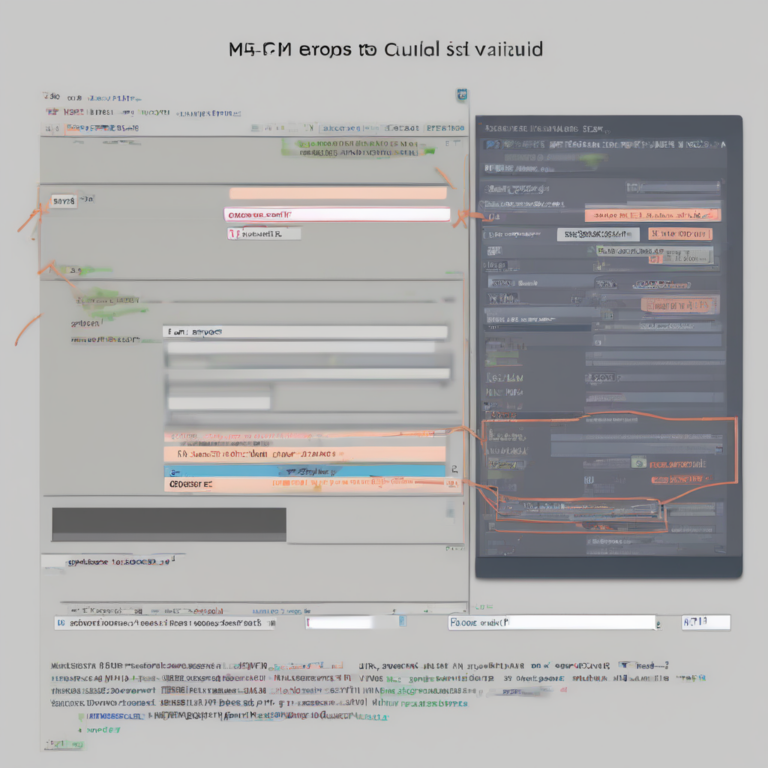Unlocking Financial Mastery: A Comprehensive Guide to Masters in Investment Programs
Unlocking Financial Mastery: A Comprehensive Guide to Masters in Investment Programs
The pursuit of financial expertise often leads aspiring professionals to consider a Masters in Investment. This advanced degree offers a rigorous curriculum designed to equip individuals with the theoretical knowledge and practical skills needed to navigate the complexities of the financial world. This comprehensive guide delves into the nuances of these programs, exploring their curriculum, career prospects, and the essential considerations for prospective students.
Understanding the Scope of Masters in Investment Programs
Masters in Investment programs are not monolithic; they offer diverse specializations and learning approaches tailored to different career aspirations. Some programs emphasize quantitative analysis and computational finance, while others focus on portfolio management, private equity, or real estate investment. Understanding these variations is crucial for selecting a program that aligns with individual career goals.
- Quantitative Finance: This specialization equips students with advanced mathematical and statistical modeling skills, crucial for developing sophisticated trading strategies and risk management models.
- Portfolio Management: This track focuses on the selection, construction, and management of investment portfolios, encompassing asset allocation, risk assessment, and performance evaluation.
- Private Equity and Venture Capital: This area of study delves into the intricacies of private equity investments, including deal sourcing, valuation, due diligence, and fund management.
- Real Estate Investment: This specialization focuses on the principles and practices of real estate investment, including property valuation, market analysis, and investment strategies.
- Financial Engineering: This specialized program combines financial theory with engineering principles to design and implement complex financial models and systems.
Curriculum and Key Coursework
A typical Masters in Investment curriculum covers a broad range of core subjects and specialized electives. The core curriculum generally includes:
- Financial Economics: A foundational course exploring the economic principles underlying financial markets and investment decisions.
- Corporate Finance: This course examines the financial management of corporations, including capital budgeting, financing decisions, and dividend policy.
- Portfolio Theory and Management: A deep dive into the theoretical frameworks and practical techniques of portfolio construction and risk management.
- Fixed Income Securities: A detailed exploration of the bond market, including valuation, risk analysis, and trading strategies.
- Equity Valuation and Analysis: A comprehensive study of methods for valuing stocks and conducting equity research.
- Derivatives and Risk Management: An in-depth examination of derivative instruments and their application in hedging and speculation.
- Investment Strategy and Asset Allocation: This course focuses on developing long-term investment strategies and allocating assets across various asset classes.
- Financial Modeling and Data Analysis: Students learn to utilize financial modeling software and statistical techniques for analyzing financial data and making informed investment decisions.
- Alternative Investments: An exploration of alternative investment strategies, such as hedge funds, private equity, and real estate.
- International Finance: This course explores the unique challenges and opportunities of investing in international markets.
Beyond the core curriculum, students typically have the opportunity to specialize through elective courses tailored to their interests and career goals. These electives might include specialized topics like behavioral finance, impact investing, or fintech.
Admission Requirements and Application Process
Admission to a Masters in Investment program is typically competitive. Prospective students need a strong academic background, demonstrated quantitative aptitude, and relevant work experience (though not always required). Common requirements include:
- Bachelor’s Degree: A bachelor’s degree in finance, economics, mathematics, engineering, or a related field is usually required.
- GMAT or GRE Scores: Many programs require applicants to submit scores from the Graduate Management Admission Test (GMAT) or the Graduate Record Examinations (GRE).
- Letters of Recommendation: Strong letters of recommendation from professors or supervisors who can attest to the applicant’s academic abilities and professional potential are essential.
- Statement of Purpose: A compelling statement of purpose outlining the applicant’s career goals, reasons for pursuing a Masters in Investment, and how the program aligns with their aspirations.
- Resume or Curriculum Vitae: A detailed resume highlighting relevant work experience, academic achievements, and extracurricular activities.
- Transcripts: Official transcripts from all previously attended colleges and universities.
Career Prospects and Salary Expectations
A Masters in Investment opens doors to a wide range of lucrative and challenging careers in the financial industry. Graduates are highly sought after by investment banks, hedge funds, asset management firms, private equity firms, and other financial institutions. Common career paths include:
- Financial Analyst: Conducting financial research, analyzing market trends, and making investment recommendations.
- Portfolio Manager: Managing investment portfolios for individuals or institutions.
- Investment Banker: Advising corporations on mergers, acquisitions, and other financial transactions.
- Hedge Fund Manager: Managing a hedge fund and developing sophisticated investment strategies.
- Private Equity Associate: Working on private equity investments, including deal sourcing, due diligence, and fund management.
- Quantitative Analyst (Quant): Developing and implementing quantitative models for trading and risk management.
- Financial Risk Manager: Assessing and mitigating financial risks for financial institutions.
- Consultant: Providing financial advisory services to corporations and governments.
Salary expectations for graduates with a Masters in Investment vary depending on the specific role, location, and employer. However, these positions generally command high salaries and offer excellent career progression opportunities.
Choosing the Right Program: Key Considerations
Selecting the appropriate Masters in Investment program requires careful consideration of several factors:
- Program Reputation and Rankings: Researching program rankings and reputation can help identify top-tier programs with strong faculty, rigorous curriculum, and excellent career placement services.
- Curriculum and Specialization Options: Choosing a program with a curriculum that aligns with your career goals and offers specializations in your areas of interest is crucial.
- Faculty Expertise: Investigating the faculty’s expertise and research interests can help ensure that you will learn from leading experts in the field.
- Career Services and Networking Opportunities: A program with robust career services and networking opportunities can significantly enhance your job prospects after graduation.
- Location and Cost: Consider the program’s location and tuition costs, ensuring that the program fits your budget and personal preferences.
- Program Format: Determine whether a full-time or part-time program better suits your circumstances and learning style.
- Alumni Network: A strong alumni network can provide valuable mentorship and career guidance.
By carefully evaluating these factors, prospective students can identify a Masters in Investment program that aligns with their career aspirations and sets them on a path toward financial success.
Continuing Professional Development
The field of finance is constantly evolving, demanding ongoing learning and professional development. Even after completing a Masters in Investment, it’s crucial to stay abreast of current trends, new regulations, and emerging technologies. This can involve pursuing professional certifications, attending industry conferences, and engaging in continuous learning through online courses and workshops.
Conclusion (Omitted as per instructions)






